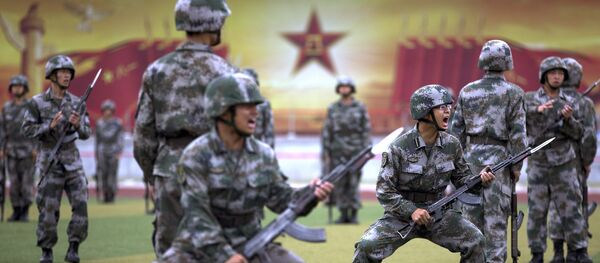“The irony of historical process in this case is in the fact that some time ago the first two themselves were objects of severely ferocious colonial policy. Today, all three of them are quite successfully conquering hearts and souls of Africans with economic tools.”
During the forum, Xi Jinping announced that within the next three years China will allocate $60 billion in order to support the operation of ten programs intended for solution of a wide range of problems, preventing full development of African countries.
As mentioned by Terekhov in his article, China had become the biggest competitor to the leading Western States in the sphere of economic relations with African countries.
“The total volume of Sino-African trade in Year 2014 amounted to $222 billion. Republic of South Africa and Nigeria are the main trade partners of China at the continent.
The turnover with each of them is close to 30 billion US Dollars,” Terekhov wrote for the New Eastern Outlook.
Talking about China’s recent visit to Africa, Terekhov noted that during his visit, Xi Jinping also met with President of the Republic of Zimbabwe Robert Mugabe. His other most notable negotiations were with the leaders of Republic of South Africa, Nigeria and Egypt, that is, with three of the leading African countries.
Similarly, India and Japan, are also stepping up their presence in Africa. The main platform of development of relations with African leaders for the first of them is the India-Africa Forum Summit, IAFS.
Terekhov explained that the outcome of the summit’s third meeting, held in New Delhi October 26-29, 2015, has become an extensive joint declaration “Partners in Progress: Towards a Dynamic and Transformative Development Agenda”. “This document, being rather a memorandum of understanding, affects virtually all aspects of bilateral inter-State relations.”
Looking at Japan it can be said that Japan has significantly greater resources for global competition with China. The strategy of ‘close personal custody’ is being observed in Africa, according to Terekhov.
As noted the author, these top Asian players operate in Africa within the presence of former European metropolises and the United States.
“Washington, apparently, faces the necessity of a radical change of foreign policy, with which their own interests (including those in Africa) will prevail over the grounds to maintain ally relations with the leading European countries. In this regard, much may be clarified in the course and by the results of the upcoming presidential race in the United States.”
Terekhov mentioned that there is a relative invisibility of the political processes flow around the African continent.




